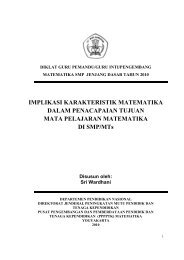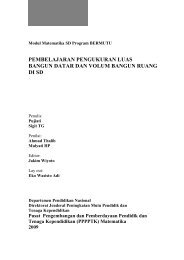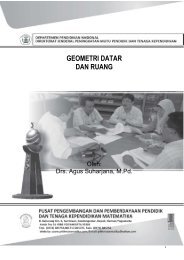25 Biggest Mistakes Teachers Make and How to Avoid Them
25 Biggest Mistakes Teachers Make and How to Avoid Them
25 Biggest Mistakes Teachers Make and How to Avoid Them
Create successful ePaper yourself
Turn your PDF publications into a flip-book with our unique Google optimized e-Paper software.
Mistake<br />
6<br />
<br />
Physiological Discrimination<br />
SCENARIO 6.1<br />
The Antifat Motive<br />
When I was in ninth grade, I tried out for the cheerleading/pom-pom squad. I made it.<br />
I was thrilled. I was excited because even though I was a little overweight, I had been<br />
chosen. I went <strong>to</strong> practices, games, followed the routines, <strong>and</strong> tried <strong>to</strong> have fun. It was<br />
difficult sometimes because the others girls would make fun of me or call me names.<br />
Now during this time, I didn’t really lose or gain any weight. So here was the issue. My<br />
coach called me in<strong>to</strong> her office <strong>and</strong> said that one of the main reasons I was on the team<br />
was so that I could get more physically fit. Boy was I taken aback. I was so hurt <strong>and</strong><br />
disappointed in her <strong>and</strong> myself. I still love being a “st<strong>and</strong> cheerleader,” but I never tried<br />
out again.<br />
The coach obviously had a<br />
hidden motive for selecting<br />
the overweight student for the cheerleading<br />
squad: <strong>to</strong> make the student<br />
lose weight. When the student did<br />
not lose weight, the coach felt compelled<br />
<strong>to</strong> reveal a personal “antifat”<br />
motive. This c<strong>and</strong>id revelation clearly<br />
communicated <strong>to</strong> the student that<br />
she was not okay, that she was fat<br />
<strong>and</strong> she needed “fixing.” Perhaps the<br />
coach’s intent was <strong>to</strong> shame her in<strong>to</strong><br />
losing weight by telling her that she<br />
was chosen because of her weight<br />
problem <strong>and</strong> not her merit, skill, or<br />
value. The coach’s motive was selfserving.<br />
If the student lost weight<br />
once she was a member of the team,<br />
the coach could claim credit for healing<br />
the student’s “fat affliction.” The<br />
cost of this “benevolent” act <strong>to</strong> the<br />
student ’ s self-esteem was immeasurable.<br />
Although the teacher may have<br />
felt her intentions were good, her<br />
behavior was indefensible <strong>and</strong> needlessly<br />
painful for the student.<br />
47





